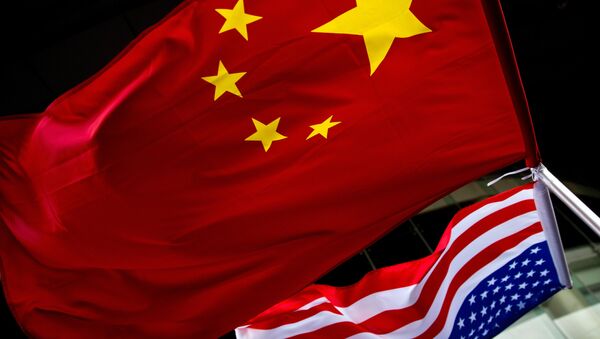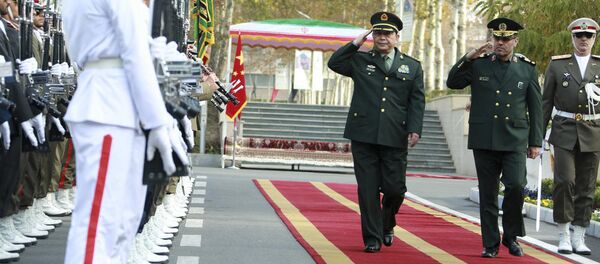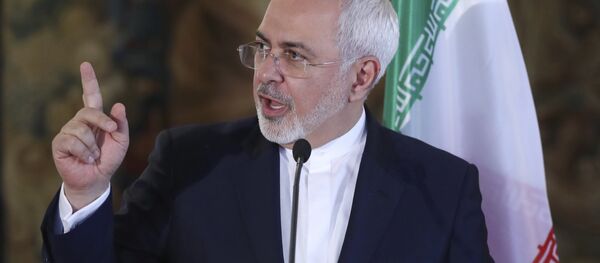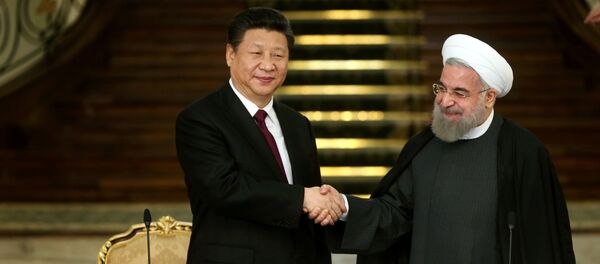"We hope that Saudi Arabia and Iran can resolve the problems that exist between them via equal and friendly consultations," Wang said March 8 at an annual news conference in Beijing.
He added: "China is friends with both Saudi Arabia and Iran. If there is a need, China is willing to play our necessary role."
Wang said that Beijing welcomes Saudi Arabian King Salman’s visit to China. King Salman is currently on a month-long Asian tour, including Malaysia, Indonesia, China, Japan, Brunei and Jordan.
Experts suggest that Wang could have already proposed the idea to his Saudi counterpart Adel Al-Jubeir during their recent meeting on the sidelines of the Munich Security Conference. Probably, during his visit, King Salman will deliver Riyadh’s response to Beijing.
Yang Mian, an expert at the Center of International Relations at the Chinese Institute of Communications, pointed out that Saudi Arabia and Iran are the largest crude exporters to China and major parties to the New Silk Road projects, and therefore Beijing’s mediator role would serve the interests of all parties.
"China has been long promoting resolving international disputes in a peaceful way. Saudi Arabia and Iran have friendly ties with China. At the same time, they are trade partners for Beijing. So, China wants to help them resolve their differences, especially using such an opportunity as the upcoming King Salman’s visit," Yang Mian told Sputnik China.
"This complies with China’s foreign policy strategy. What is more important, that currently Beijing is capable of playing the role of a mediator," the expert added.
He continued: "China’s global reputation is now on the rise, including in the Middle East. […] Mediation and resolving tensions via legal and diplomatic mechanisms comply with the current global agenda and could contribute to peace and stability in the region."
China has a great potential of influencing the situation in the Middle East, according to Irina Fedorova, an expert of the Institute for Far Eastern Studies at the Russian Academy of Sciences.
"Beijing is increasing its role in the Middle East, a region where China has significant economic interests. It’s clear that a spike in tensions between Saudi Arabia and Iran would not be in the interests of Beijing," Fedorova pointed out.
She explained that China can help ease tensions between the two Middle Eastern powers, but both in Saudi Arabia and Iran "there are forces that could reduce Beijing’s efforts to zero."
"Prior to the presidential election, political struggle in Iran is heating up. Some forces, especially conservatives, use the idea of a foreign enemy or a foreign threat in a bid to fuel tensions and boost their positions in this struggle. Tehran will listen to Beijing, but many will depend on the results of the election. If the reformists retain influence there will be more opportunities for talks," Fedorova explained.
The talks have been underway since 2004 and no progress has been made yet. According to the expert, this issue could be one of the economic priorities for China as a mediator between Saudi Arabia and Iran.
Pakhomova underscored that Beijing has everything needed to be a mediator country, including a broad network of diplomatic contacts and a wide range of mutual economic projects in development.
"However, there are other factors. One of them is the US. China’s active engagement in the Middle East may increase tensions between Washington and Beijing. The US will not be happy with China playing the role of a mediator in the Middle East. Of course, China is not interested in a confrontation with the US," the expert said.
"It’s unclear whether Beijing is ready to take the risk. Maybe, China wants to be not an official mediator, but a country exercising influence via diplomatic channels," Pakhomova suggested.
She also noted that China has been enhancing its role in the Syrian settlement, and this could be another motive to reconcile Saudi Arabia and Iran.
Never miss a story again — sign up to our Telegram channel and we'll keep you up to speed!







